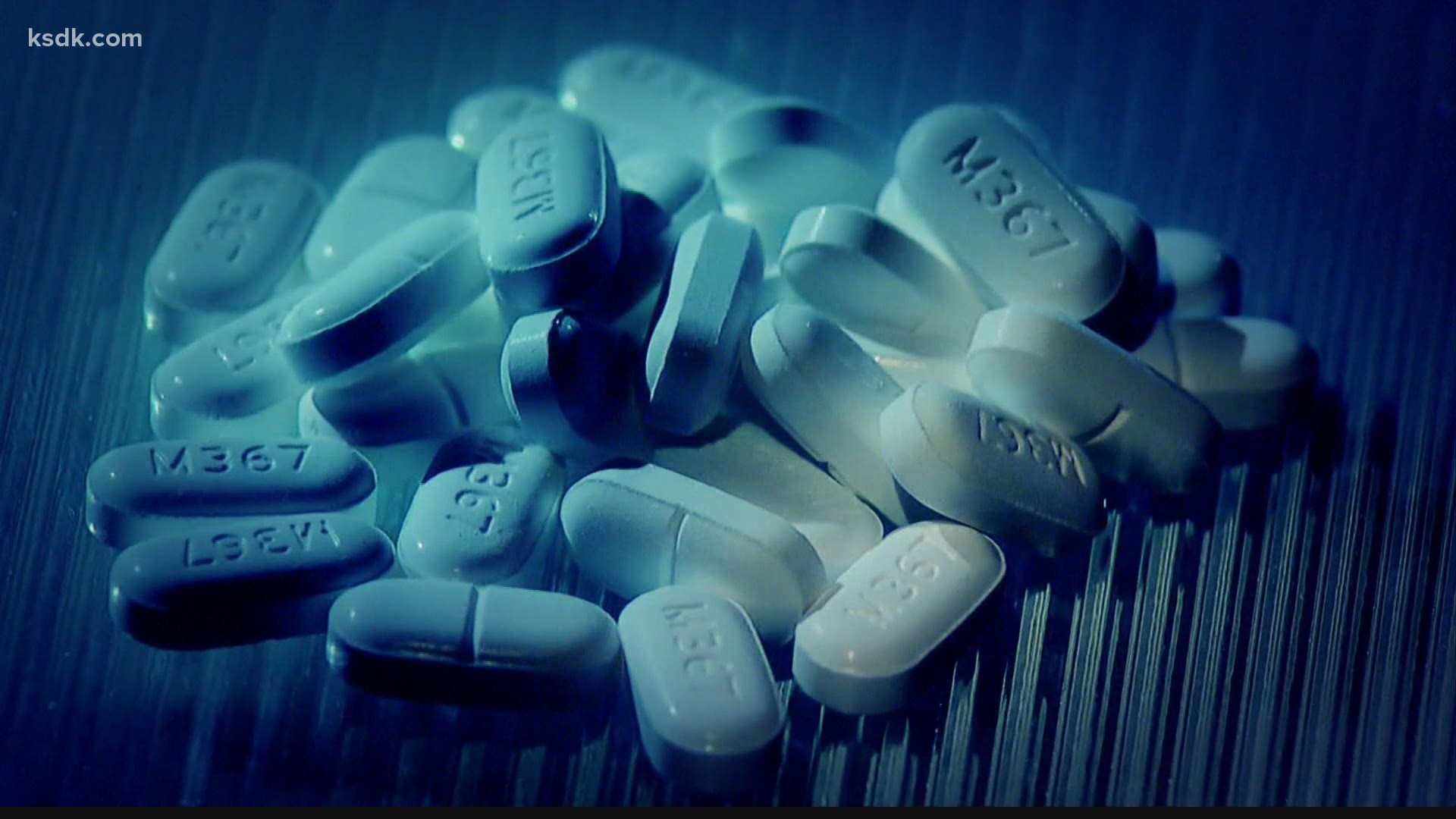ST. LOUIS — The state of Missouri is expected to receive more than $500 million as a result of a settlement with major opioid distributors.
Missouri Attorney General Eric Schmitt made the announcement at a news conference Thursday morning. Schmitt was joined by families who have lost loved ones to opioid addiction, Places for People and Angela Clabon, who is CEO of CareSTL Health.
“The loss of human life has been absolutely devastating,” Schmitt said at the conference. “Too many have been cut tragically short, bright futures have been shattered, families have been ripped apart.”
Families of those who've lost loved ones to the opioid epidemic were there.
Patty Fitzwalter's son died in 2014. She says he started off with prescription painkillers.
"This is a disease that does not discriminate and can happen to anyone. I can’t even begin to express how important this litigation is," she said.
Missouri is one of several states to reach settlements with opioid distributors Johnson & Johnson, McKesson, Amerisource Bergen and Cardinal Health. Under the settlement, Johnson and Johnson will pay out $5 billion to all states that agree to the terms. In total, the rest of the distributors will pay out $21 billion.
“As a drug that was falsely marketed as a safe and non-addictive solution to pain, the actual pain it caused Missouri families is undeniable,” Schmitt said. “The opioid epidemic knows no boundaries, by race, geography, income level or age.”
Schmitt said Missouri will only receive the estimated $500 million if all counties and subdivisions sign on to the agreement. If counties and subdivisions don’t sign on, the funds Missouri receive will be half that amount.
“The size of nature of this agreement will result in the largest victim-centric settlement in history of the state of Missouri,” Schmitt said. “Meaning every dollar will go to fighting addiction and funding treatment for real people, not just general revenue.”
The funds Missouri receives will go into an opioid abatement and treatment fund to be used for existing programs, including prevention programs, education programs, intervention efforts, treatment resources, recovery programs, treatment courts and more.
The attorneys general from other states have 30 days to sign on to the term sheets, and Missouri plans to sign both term sheets. Then, attorneys general have 120 days to achieve sign-on from subdivisions that would trigger incentive payments, according to a news release from Schmitt’s office.
The agreement will result in court orders requiring Cardinal, McKesson and AmerisourceBergen to:
- Establish a centralized independent clearinghouse to provide all three distributors and state regulators with aggregated data and analytics about where drugs are going and how often, eliminating blind spots in the current systems used by distributors.
- Use data-driven systems to detect suspicious opioid orders from customer pharmacies.
- Terminate customer pharmacies’ ability to receive shipments, and report those pharmacies to state regulators, when they show certain signs of diversion.
- Prohibit shipping of, and require reporting of, suspicious opioid orders.
- Prohibit sales staff from influencing decisions related to identifying suspicious opioid orders.
- Require senior corporate officials to engage in regular oversight of anti-diversion efforts.
The agreement will result in court orders requiring Johnson & Johnson to:
- Stop selling opioids altogether.
- Not fund or provide grants to third parties for promoting opioids.
- Not lobby on activities related to opioids.
- Share clinical trial data under the Yale University Open Data Access Project.

